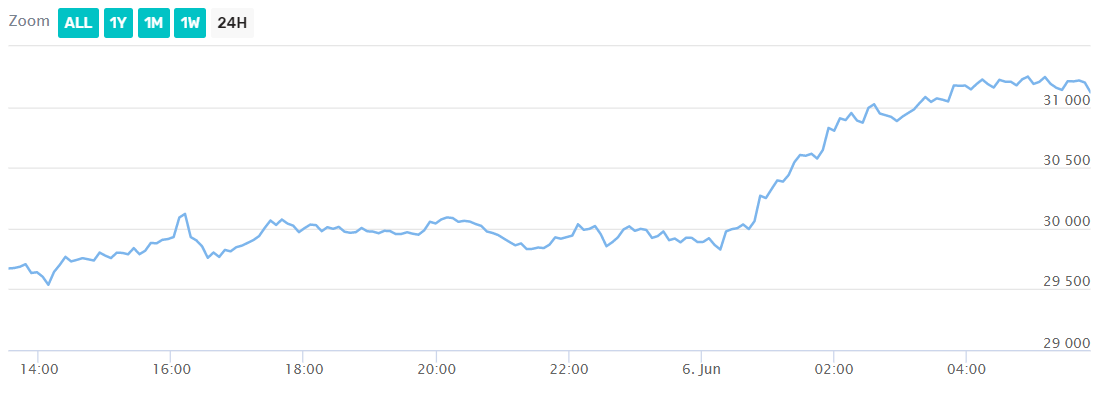06 Jun 2022 Marsha Tusk
Over A Third Of Survey Participants Want Bitcoin Legalized
Bitcoin, despite the bearish market, is still the dominant crypto not only in terms of market capitalization but also in global recognition. Indeed, a survey from The Economist reveals that 37% of the participants want their governments to legalize Bitcoin and other crypto projects for legal tender purposes. Respondents also expressed their positive stance towards CBDCs and think their governments would issue such products.
Following El Salvador’s example
Adopting Bitcoin as a legal tender became a hot topic in the fintech world, as it provided the first real-life use case of Bitcoin as a legal tender. The Economist surveyed over 3,000 participants from developed economies like the USA, France, the UK, Australia, South Korea, and Singapore, as well as developing economies like Brazil, South Africa, and Vietnam. The results about their current stance on the crypto industry showed that 37% of the respondents said they will support their respective government if it decides to make Bitcoin or another form of crypto as an official payment method. 43% expressed a neutral stance on the matter, while only 18% declared they will disagree with such a move.
The results about CBDC issuance were almost similar, but in terms of NFTs, over 60% of the surveyed participants wanted to get into the NFT ecosystem, while only 7% disagreed with the idea.
The Economist also brought up the topic of decentralized finance, where 34% revealed intentions to use such applications for personal or professional financial transactions, while 17% opted against the use of DeFi products.
Is COVID a game-changer for finance?
The COVID-19 pandemic induced a global shift in trends when it comes to payments, with many switching from cash to cashless payments. Indeed, 18% of the study participants expect their nation to become cashless in the next year or two, with 13% of respondents admitting that they are using cryptos for settlement.
John Mitchell, CEO, and co-founder of Episode Six shared his vision of the future payment network, with cryptos being a possible medium for value exchanging.
A quarter of US respondents want a legal Bitcoin
In a cash-driven economy like the US, transferring to cryptos may seem like a hard task, but El Salvador paved the way and shocked the market by declaring Bitcoin as a legal tender. El Salvador’s move pushed almost 30% of the US respondents to consider supporting BTC having a legal tender status.
It turns out that Americans residing in the West were more supportive of such a potential law, while those living in the Midwest opposed it the most.
Age and gender also played a role in the decision, as most females and people over 55 were among the biggest naysayers, while men and participants between 25 and 34 were mostly in favor of seeing Bitcoin as an official means of payment.
Legal tender amid bearish market?
The market uncertainty in the past month may be among the biggest issues for Bitcoin and the rest of the pack to achieve legal tender status. Bitcoin, however, spiked above $30,000, which may be crucial for the long-term performance of the crypto leader, as it secured a value above $31,000 to trade at $31,399.13 as of press time.
 Source: CryptoBrowser
Source: CryptoBrowser
Ethereum is also experiencing a small price increase, but the altcoin leader is still below the $2,000 mark, which could be a great place for newer price increases.
The rest of the sector is moving accordingly, with the overall crypto market cap reaching close to $1,3 trillion.
Bitcoin btc bitcoin news cryptocurrency news crypto news legal Crypto Price Survey Payments





























